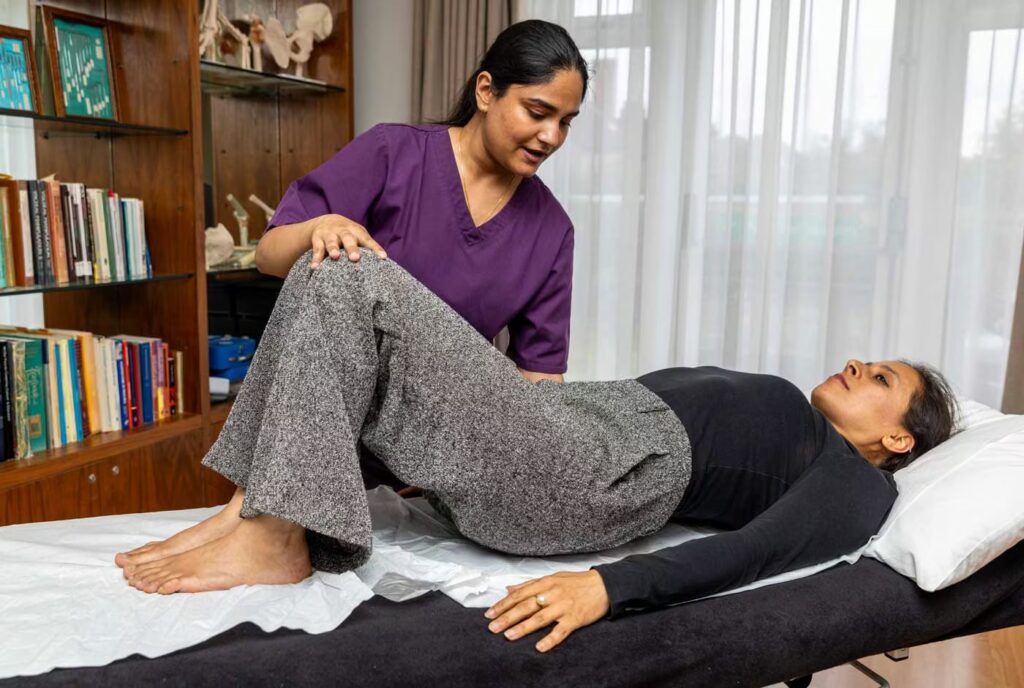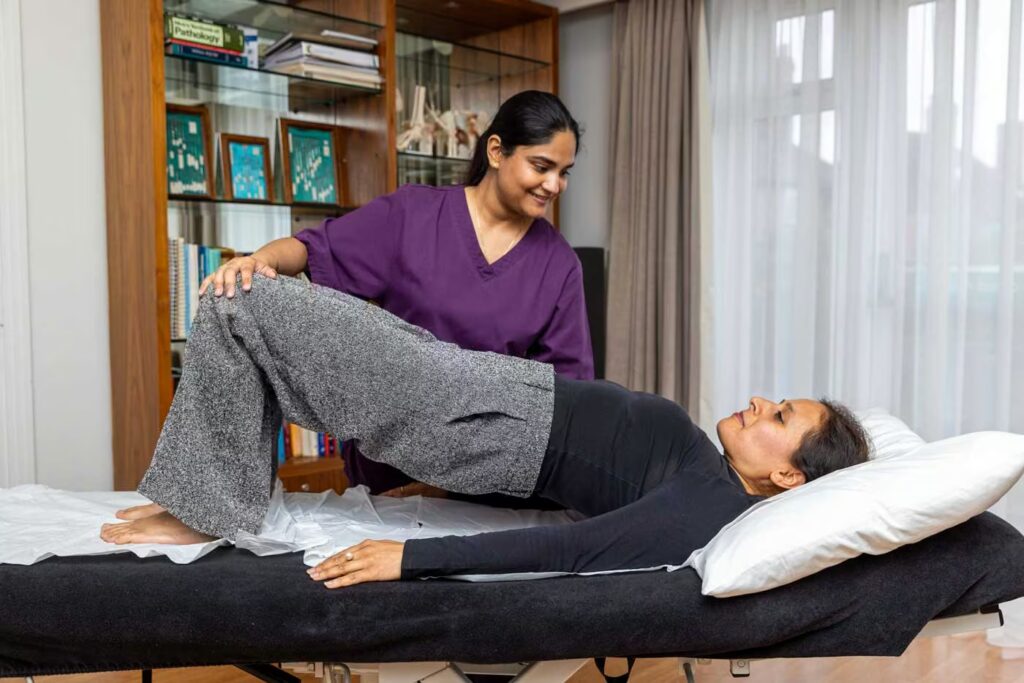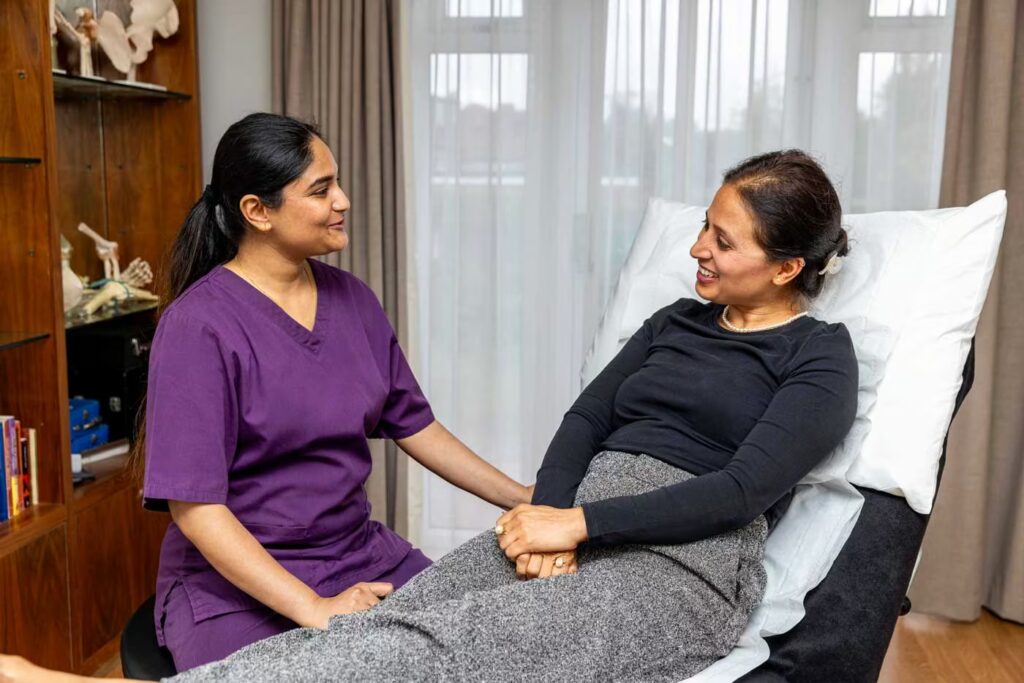Physiotherapy in Leeds

Treatments
Comprehensive Physiotherapy Care in Leeds
Our Leeds physiotherapy clinic is dedicated to helping you restore mobility, relieve and recover from pain, and improve your overall strength and mobility. We specialise in the treatment and rehabilitation of various musculoskeletal conditions, including issues affecting joints, ligaments, muscles, tendons, and nerves. Whether you’re healing after a surgery or managing ongoing discomfort, our skilled physiotherapists are here to guide you through every step of your recovery journey.
Our goal is to address the underlying causes of your condition, help prevent future problems, and promote your long-term health. Through physiotherapy, you can expect to:
- Improve your range of motion and strength
- Reduce pain and inflammation
- Recover from surgery or injury
- Prevent the recurrence of musculoskeletal issues
- Regain confidence in movement and physical performance
What Does Physiotherapy Involve?
Our experienced team of physiotherapists use evidence-based techniques and personalised treatment plans to deliver effective care tailored to your individual needs.
Treatments may include:
- Manipulation and mobilisation of joints: Helps to relieve pain and stiffness and can also improve posture, flexibility, and function
- Massage or soft tissue therapy: A gentle technique used to improve blood flow and lymphatic drainage that relaxes the body and reduces pain, making movement easier
- Exercise and movement: Targeted exercises help rebuild strength, improve flexibility, and restore function
- Electrotherapy: Involves the use of small electrical impulses to stimulate nerves and muscles which can reduce pain, promote healing, and improve recovery
What Can Physiotherapy Treat?
Physiotherapists specialise in treating the following conditions:
- Joint problems such as arthritis
- Neck and back problems – including slipped/prolapsed discs, arthritis, sciatica, lumbago, and neck pain and stiffness
- Sports injuries to muscles, ligaments, cartilage and tendons
- Soft tissue problems – including tennis elbow and golfer’s elbow, tendonitis and frozen shoulder
- Gynaecological conditions – including stress incontinence and rehabilitation after surgery
- Pregnancy and childbirth – including treatment for back and pelvic pain
- Chest conditions – such as asthma, chest infections, cystic fibrosis, emphysema, bronchitis and bronchiectasis
- Neurological conditions – such as strokes, head injuries, nerve injuries, multiple sclerosis, shingles, cerebral palsy and chronic fatigue
- Circulatory problems – such as Raynaud’s disease, intermittent claudication (a clinical diagnosis given for muscle pain) and cardiac rehabilitation
- Rehabilitation after surgery – including after fractures
- Work related conditions such as Repetitive Strain Injury (RSI)

Why People Choose Us
- Fully qualified physiotherapists registered with the CSP and HCPC
- Multi-disciplinary team offering integrated care under one roof
- Welcoming and accessible facilities with private treatment rooms
- Appointments available weekdays and Saturdays
- Trusted by local residents, families, and professionals since 1993
